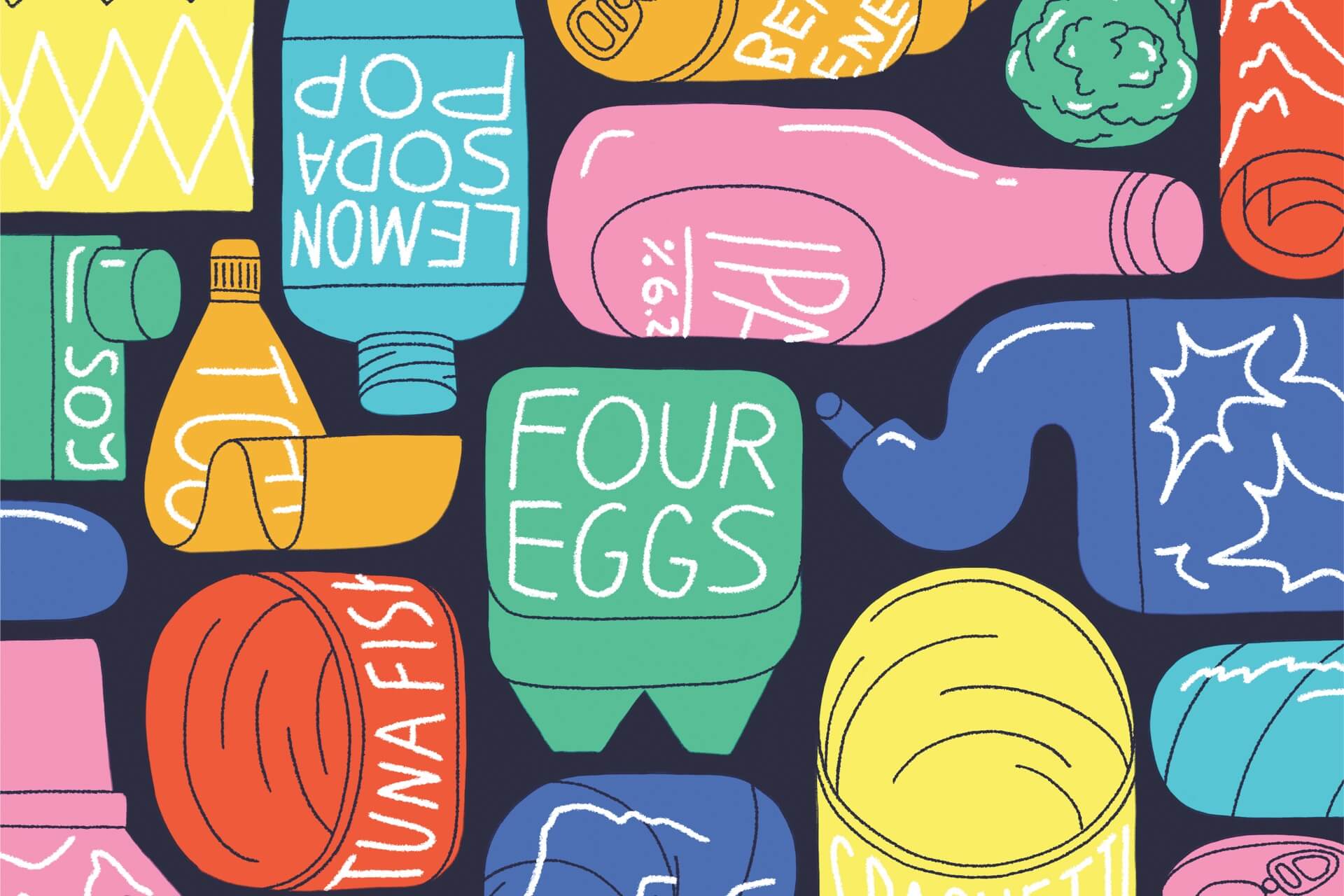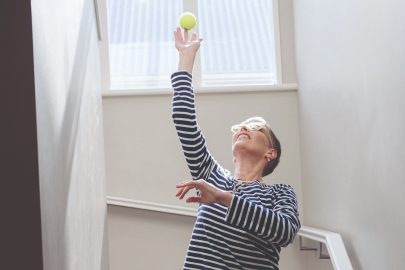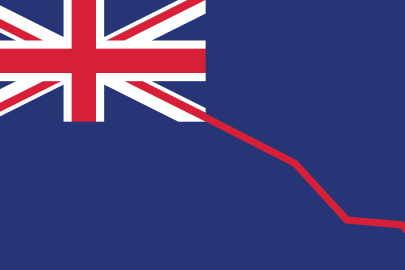Oct 11, 2022 Society
My flat always misses recycling day. Even worse, we often miss regular rubbish day, too. Every second Thursday, I’ll be half-asleep, swaddled in my blankets, my face squashed into my cuddly penguin, when the rubbish truck rumbles into my street. One of my eyes will open: did someone do the recycling?
Recycling and rubbish never used to take up much space in my brain, except for part-time jobs where it came with the role, or at my old flat where we had a roster. At my family home, my grandpa managed all the recycling meticulously. He played Tetris with the rinsed plastic, glass bottles, aluminium cans and egg cartons our family of eight produced over 14 days and nights.
Papa was very particular and would get frustrated if we put red-bin stuff into the blue bin and vice versa. On weeks when our household produced extra rubbish (holiday seasons or when family stayed over), he would sneak our excess into the blue bin belonging to our neighbour, who lived alone. The bogan family across the road — who hosted bimonthly garage sales and left inorganic items on their berm even when it wasn’t collection time — caught on and started to copy him. Pretty soon, my grandpa was waking early to beat the bogans to the blue bin next door.
My flat and I haven’t lived together for long, but we’re beginning to know who grinds coffee in the morning and leaves bean residue everywhere, even though the mini compost bin is on the kitchen counter. We know one of us is a loyal Uber Eats customer, from the brown paper bags in our box of cardboard next to the fireplace; and we know that we all suck at buying groceries for one, with mouldy bread and unused onions ending up in our rubbish.
The night after our housewarming party, I noticed that our rubbish had piled up with nowhere to go. No one had brought a bin with them. A cardboard box the height of a small child was home to all the RTD cans and beer bottles. The bottom of the box was rubbish from the week: food packaging, endless wrapping and other pointless plastic. No one seemed eager to address the issue, so I set off to Kmart. I hovered around the 38-litre stainless-steel bins, and the fancy $41 under-the-sink pullouts. There was even a two-tier bin, but my bank account said no. So I opted for three cheap bins. Two were placed in the kitchen: one landfill and one recycling.
A week later, we finally worked through our party recycling (and another month’s worth of regular recycling). My flatmate clambered into the top of the bin and jumped up and down until we could swing the lid shut. Two weeks later, we forgot to take the recycling out again. By the next pick-up day, our recycling had again spilled over into cardboard boxes. Were we consuming too much?
Another two weeks passed. Now we had a roster. Someone was supposed to gather the rubbish bags, sort the recycling and wheel the bins out the night before. Then recycling day arrived and everyone kind of forgot about it.
Except me.
I listened that morning as the recycling truck drove and paused, drove and paused. I pictured what our house would look like with another month’s worth of recycling under the kitchen bench.
Thinking of my grandpa, I collected the rubbish bags and put them in the bin as the truck neared. I played Tetris with the oat and soy-milk cartons and tuna cans until our blue bin couldn’t take any more. On our berm was a blue bin that had definitely been empty since we moved in. I snatched it and wheeled it to our backyard, filling it with as many cans and empty Sprite bottles as I could, as fast as I could. I wondered if other people had this much trouble organising their waste.
To remind myself of the point of the whole exercise, I googled ‘what happens to our recycling?’ Step one: pick up. Step two: sorting at material recovery facility. Step three: separation. According to recycle.co.nz, approximately 252,000 tonnes of plastic waste enters New Zealand landfills each year. That means a whopping number of New Zealanders just… can’t be bothered? Don’t know what can be recycled? Are as overwhelmed as I am about how much we produce?
It can’t be accessibility. Ecotricity says New Zealanders have good access to recycling facilities; in fact, 97% of us do. And yet of the 31 kilograms of plastic each individual consumes each year, only 5.58 kilos is recycled.
It can’t be our attitudes. The Ministry for the Environment says 92% of New Zealanders feel fairly confident they place the correct items in the recycling bin and 85% agree it’s worth taking the time to recycle correctly.
Canadian researcher Max Liboiron, author of Pollution is Colonialism, says “recycling is good for ethics; you can be a good citizen, it’s better than nothing. But it is not the solution, because it allows the problem to continue.”
Of course, as young people, my flatmates and I care about the devastating effects of climate change and the wider environmental mess our generation have been left with. Each of us “do what we can” to make the world a better place, outside of forgetting to take the bins out. One cycles more frequently than she drives; another is a vegan who manages our compost; one works at a plant store while regularly caring for our flat garden. Do we think it’s important to recycle? Yes! But it doesn’t mean we are failing the planet if we are failing to do it regularly… right?
Last week, I slept through the recycling truck’s arrival. I thought about my paper KFC bags, sitting next to the packed grey recycling bin. Better luck in two weeks’ time.
–
This feature was published in Metro 436.
Available here in pdf format.







